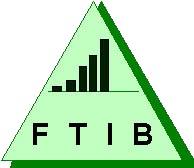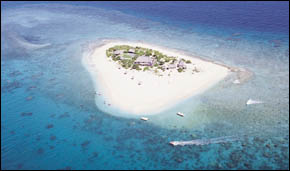 GENEROUS
INCENTIVES FOR INVESTMENT GENEROUS
INCENTIVES FOR INVESTMENT |
In addition to Fiji's special access to lucrative
markets in Australia, New Zealand, the US and the
EU and in a serious bid to attract investment, the
country launched further concessions in its incentive
package of 2001.
 A package
based on eight principles A package
based on eight principles |
· Low tax rates
· Income taxed only once
· Low duty rate on production inputs, construction
and capital materials
· Accelerated depreciation allowance
· Investment allowances
· Loss carry forward
· Duty free input for exports
· Export Income Tax deductible

In addition, the package further offered specific
industry concessions. In tourism for instance, projects
for approved hotel building or expansion may be
entitled under the Hotel Aid Act to receive an investment
allowance of 55% of the cost. For tourism vessels,
they get an investment allowance of 55% of the minimum
cost of $100,000 FJD. Concessions are also offered
for the development of upmarket hotels under what
the Fiji Government calls the Short Life Investment
Package (SLIP). Special concessions are also offered
for mining, fishing, bus body-building and film
making and audio visual.
Added Incentives:
· Double taxation agreement: Fiji has
negotiated with New Zealand, Australia, Japan
and the United Kingdom, which means exemptions
or tax concessions granted in Fiji are not negated
by an imposition of tax in the country of residence
of the investor.
· Freedom to manage your business including
the employment if necessary of foreign managerial
and technical personnel
· No taxation for non-resident on profit
on sale of investment land
As the one stop shop for investors, the FTIB
also facilitates assistance schemes that are offered
to the private sector in Fiji. These include export
promotion incentive and export finance facilities.
The Bureau also liases with the Fiji/New Zealand
Export Enhancement Fund, the Fiji/New Zealand Small
Business Training Fund, Pacific Island Investment
& Development Scheme, Centre for Development
of Enterprise, South Pacific Project Facility, Forum
Secretariat Assistance Scheme and the ACP-EU Assistance
Scheme.
Governor of the Reserve
Bank, Savenaca
Narube believes the setting up of an Export
Credit Guarantee Scheme is also a step forward as
the government recognises the importance of the
export industry in driving economic growth. "The
establishment of the Scheme comes at an opportune
time, particularly with some exporters facing financing
difficulties. These measures should go a long way
to deepen and create a more efficient financial
sector." To reward and recognise enterprising
exporters, the FTIB
organises its annual Exporter of the Year award.
Held towards the end of the year, the award is supported
and sponsored by the private sector. Fiji Fish Marketing
Group Ltd. is one of the classic winners.

|
Coming as a major reassurance
for foreign and local investors alike was the decision
of international donor agencies to do business with
the Fiji Government. Bulk of the aid is going into
infrastructure development. The European Union for
instance is funding about $55 million FJD (@ $27.5m
USD) worth of projects in 2003 which includes the
relocation of the capital city's Lami rubbish dump,
the construction of a new Fiji School of Medicine
campus and the new Rewa Bridge. Japanese aid is
funding the new sewerage outfall at the capital's
sewage treatment plant. The Fiji Government is also
investing heavily in its water supply distribution
system. "The government is now, more than
before, contracting out work with the private sector.
It is more efficient, less costly and better because
it is done in a competitive environment,"
Minister for Works Mr. Savenaca
Draunidalo, points out. "It is a main
policy for this government to encourage this type
of contracts work with the private sector. For instance,
the Rewa Bridge, a major project that is a two-year
program, we have tendered out in Fiji and abroad
so the European Union and the best private sector
company will do it. Another example regards to the
Natadola Tourist location, that is already being
done by private contractors. They are doing the
roads and the government is providing the workforce.
The water will be done by the Public Works Department.
So all the existing projects are either being done
totally by the private sector or in combination
with government."
 Investment
in Education Results in Highly Trained Workforce Investment
in Education Results in Highly Trained Workforce
|
A legacy of past governments in Fiji has been
their emphasis in education. The country now boasts
a well-educated population with over 90 percent
literacy rate. With free education offered up
to year 10 of schooling, children are encouraged
to pursue excellence. Tertiary education is being
encouraged through government scholarship schemes
and student loan facilities. Fiji is among island
nations that got together in the late 1960s to
form the University of the South Pacific. It now
hosts the university's largest campus at Laucala
and has become the largest contributor of the
university budget. Other island nations have also
made use of Fiji's School of Medicine, its Nursing
School, Institute of Technology, College of Agriculture
and numerous computer and IT based institutions.
Education gets the largest share of Fiji's budget
in 2003, totalling $221.5 million FJD (@ $110.75m
USD). Says Prime Minister Qarase: "Our
educational level compares well with the level
of education in countries like Australia or New
Zealand. Our population speaks English very fluently
and it is a literate population. We believe that
education is the key for development so we will
continue allocating resources to this sector as
a matter of priority."
 The Prime
Minister's Think Tank The Prime
Minister's Think Tank |
Hon. Laisenia Qarase's open attitude to the business
community has been clear since the beginning of
his mandate. Lately, he has appointed an 18 member
advisory group, known as "the PM's Think
Tank", to have a general feedback of his
actions and future policies. The group is composed
by the following personalities in the country:
1) Hon. Ratu Jone Y. Kubuabola, Minister for
Finance & National Planning.
2) Hon. Tom Vuetilovoni, Minister for Commerce,
Business Development and Investment
3) Mr. David Aidney
4) Mr. Grahame Southwick
5) Mr. Hari Punja
6) Mr. Hugh Ragg
7) Mrs. Jenny Seeto
8) Mr. Jesoni Vitusagavulu
9) Mr. Joe Mar
10) Mr. Kanti Tappoo
11) Mr. Mahednra Motibhai Patel
12) Mr. Mark Halabe
13) Mr. Martin Darveniza
14) Dr. Nur Bano Ali
15) Mr. Radike Querequeretabua
16) Mr. Ram Naidu
17) Mr. Savenaca Siwatibau
18) Mr. YP Reddy |

